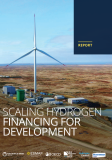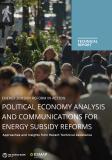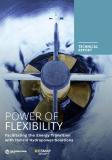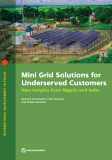Publications
Some 4 billion people still cook with traditional polluting fuels and technologies. The adverse development impacts from households continued use of polluting stove-and-fuel combinations are significant. Transitioning this population to modern cooking services (MECS) - part of United Nation (UN) sustainable development goal 7 - remains a significant challenge.
This report presents the findings of a systematic review of published evidence on demand- and supply-side drivers of and barriers to transitioning populations to MECS. The barriers and drivers identified include, but are not limited to, education levels and wealth status; peer influence and trust in stove information source; competition with existing fuels and technologies; and program design features, including technology, training, and after sales support.
The report provides key recommendations for overcoming the challenges that inhibit large-scale transition to MECS: (i) better focused programs that consider the socioeconomic realities of the target groups, such as financial mechanisms that address affordability constraints; (ii) incorporating measures that concurrently tackle existing stove technologies and current fuel use practices that programs aim to displace; and (iii) address awareness creation as a separate MECS intervention, with public sector investments on this component.
ESMAP.2021. What Drives the Transition to Modern Energy Cooking Services?: A Systematic Review of the Evidence (English). Energy Sector Management Assistance Program (ESMAP) Technical Report;015/21 Washington, D.C. : World Bank Group. http://documents.worldbank.org/curated/en/518251613714281312/What-Drives-the-Transition-to-Modern-Energy-Cooking-Services-A-Systematic-Review-of-the-Evidence



